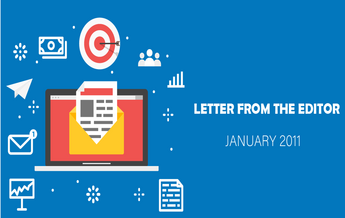Happy New Year from LogiGear to those of us who celebrated New Years on January 1! And for our lunar calendar followers, an almost Happy New Year come February 3rd.
We look forward to an exciting and full 2011 as its predecessor was a tough year for many in the software business. At LogiGear Magazine, we view 2011 as a brighter year filled with innovation and advancement. We continue to bring you current articles and video on the latest trends in software quality.
Our editorial calendar is filled with engaging monthly themes addressing software developments, ongoing research and leading individuals in the industry. We are pleased to announce that our upcoming issue will feature a ground-breaking series from Hans Buwalda on Agile Test Automation. As an influential and respected visionary, his articles will highlight the direction of software testing.
As it is difficult to keep pace with the speed of which technology advances, I would like to invite those who have a story in mind and interested in publishing to our readers–be it an interesting perspective or memorable experience on software testing, we are interested in publishing articles or columns from professionals in the field. Our focus for 2011 is getting the next generation of software quality experts published and in the news! Please visit our website as we have just posted our 2011 editorial calendar. Our submission guidelines and contact information are also online.
As the new year moves forward and software testing progresses, we at LogiGear Magazine strive to cover the highlights along the way.
Michael Hackett
Editor



















